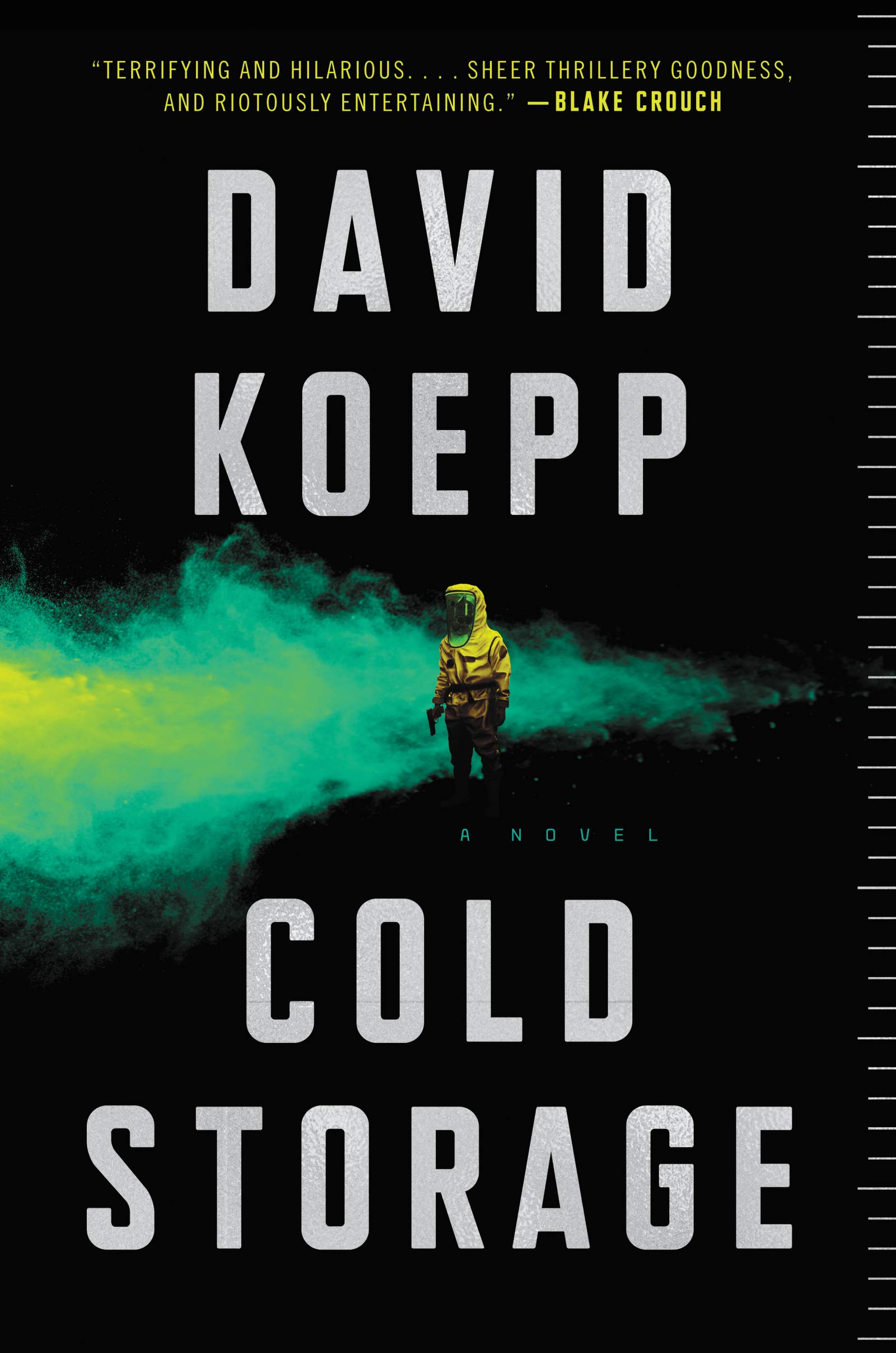
David Koepp is a proven screenwriting talent--he worked on the screenplay for Jurassic Park, for example. His 2019 novel, Cold Storage, returns to the Crichton canon, this time mining from Andromeda Strain. Foremost, the book operates as cli-fi, dealing with anxieties of changes to our ecosystem as a result of carbon emissions and other human activity, but it also deals with anxieties of nuclear proliferation and the diversifying of America.
Cold Storage is not Andromeda Strain, but the two books tell essentially the same story: a killer virus appears from out of space and humanity is probably screwed as a result. Indeed, upon contact with the virus/fungus, people are dead, fast.
Cold Storage was optioned in 2018, and that's a good thing. This book is fun, and it will make for a great movie. Koepp moves fast and so does cordyceps novum, the nightmare fungus from outer space. Koepp builds the characters carefully, both likable and unlikable ones. Plus, it's smart--you'll get a quick lesson on a variety of topics, including fungus growth, human biology, and the payload of nuclear weapons.
But Koepp knows that his topic is kind of, well, laughable. Yes, fungus can do all sorts of awful things, but its lack of what we would agree upon as human rationality doesn't make for an especially horrifying villain. Koepp narrates the fungus' growth and colonization attempts as if it possessed a human mind, but then backtracks toward the end of the book and notes that his narration isn't exactly how the fungus operates. Fungus might do all sorts of inventive things to expand but never as a result of the cold rationality that Koepp ascribes to it in the book. But this leaves us with a problem, because the fungus does take over the minds of a few people, hijacking their thoughts. Those moments are exciting; they read well, but require some suspension of belief as the fungus' capacity to invade the human mind and take over cognition isn't explained. No, we just get a lot of people that are magically messed up.
The unexplainably smart fungus is pardonable because the narrative is so tight and because the fungus problem fits into the cli-fi subgenre. Koepp indirectly gives us climate change in the blame game for the fungus' ability to break free of its cold storage unit. Over several decades, the underground facility the fungus is housed in progressively warms, giving the fungus the slightest help it needed to break out.
Even though Koepp doesn't do much to address global warming, the novel works well because it plays with our fears of the 21st century's mostly invisible problem that we increasingly can't look away from. Yes, in the era of the anthropocene, any narrative where nature goes crazy is called for. Rapidly metastasizing fungus can read as forest fires, melting glaciers, poor air quality, polluted water, or whatever. A ubiquitously uninhabitable earth is bad, and the fungus has the same capacity as climate change for making the earth completely inhospitable to all life.
Now, Roberto's solution to nuke the fungus is where our anthropocene-era reading of Cold Storage drops out. We're no longer living in the Cold War era. Nuking our way to peace is a holdover of mid 20th-century thinking. The nuke, in popular middle-American folk thinking was--and frighteningly still is in some deep red pockets--Maslow's hammer for the 20th century, it was thought to fix every problem. But global warming is a decidedly hot problem; we can't nuke it away. Neither can we disbelieve it away or cause it to shrink with our military might.
The other major theme at play in Cold Storage is xenophobia. The fungus first lands in the middle-of-nowhere-Australia, a village with 26 people that are all promptly colonized and killed by cordyceps novum. The DTRA (Defense Threat Reduction Agency) take a sample and put it in a secure (at least for a while) government sub-basement in Kansas. In the era of the Syrian refugee and the South American refugee, purging America of deadly viral or fungal strains reads as building the wall, as keeping out the other.
But Koepp doesn't advocate for white supremacy and xenophobia. He writes a tense moment between Roberto the latino DTRA agent and a white police officer that pulls him over for speeding. Roberto sees a tattoo that pegs the officer as a white supremacist and uses it to manipulate him, calling himself a brother of the officer's clandestine order and lamenting what the US has become.
So, the destruction of the deadly fungus isn't supposed to read as support of initiatives to rid the US of outsiders; rather, it puts a finger on our nation's racism and hate. Importantly, the fungus colonizes people representing several different races, including white men, but the heroes that walk away are a diverse crew, including a young black woman, a young white man recovering from a drug habit, and an aging latino. Also important here is that one particularly awful white dude, Murphy, dies not as a result of the fungus but because of his rotten nature.
It's nice and cathartic, however, to read a book where you can nuke your problems away. If only a single action could put a rest to pandemics, global warming, and racism. However, the problems of the 21st-century are much more complex than this material can handle, so we'll have to settle for Crichton-styled escapism recycled to nod at the problems of our day.
Ready for More Rapid Transmissions?